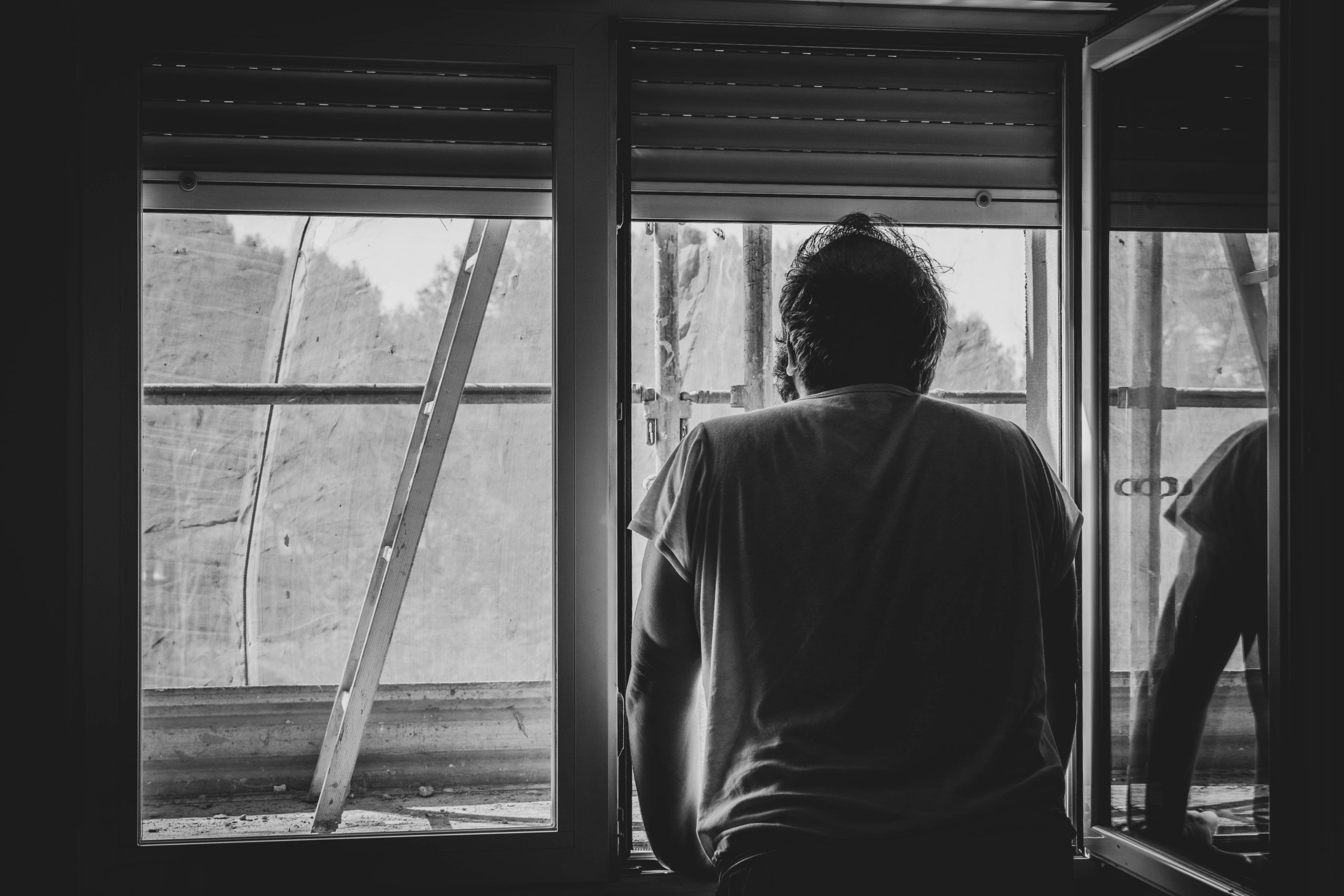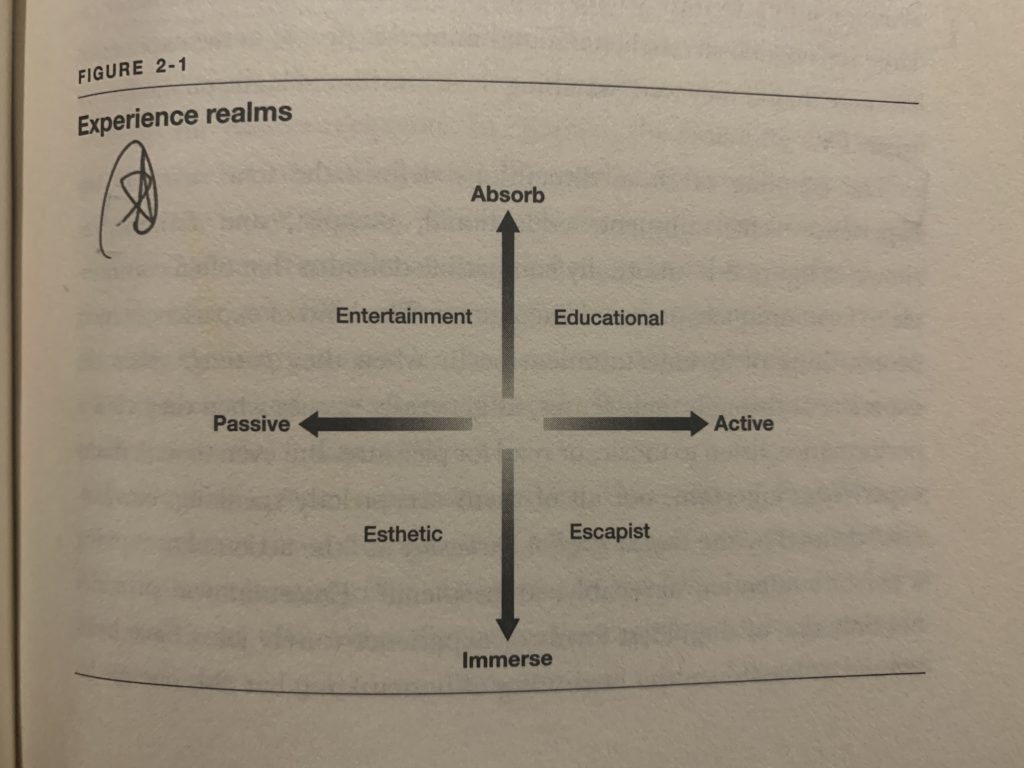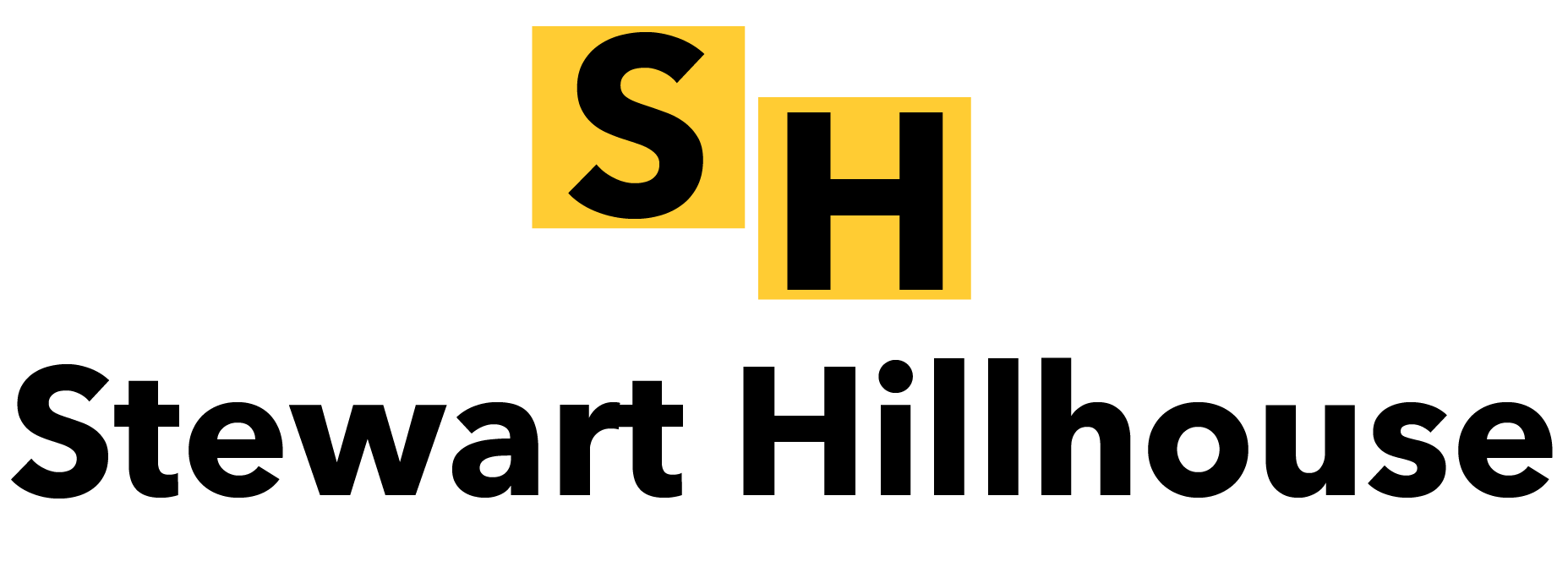
What We Can Learn About Experiences From Quarantine 2020
One thing that I’m finding the most interesting about this quarantine, is that it forces every single person affected into the exact same Experience.
Now, this will look very different depending on what your living situation is. But that’s not what I’d like to focus on. What I’m talking about it the Experience with a capital “E” that we’re all going through currently.
In The Experience Economy by B. Joseph Pine and James H. Gilmore, there is a chart that I will refer to as I work to put into words what possible lessons are just under our nose. They place all Experiences within 4 realms: Entertainment, Esthetic, Educational, and Escapist.

What we see is that in the bottom right corner of the chart, lives escapist. This kind of experience is one where you not only have influence on the outcome of your experience (by being an active participant), but the situation also fully immerses you into the Experience.
So if you’re currently in quarantine (as I am), we find ourselves in an semi-estehtic and semi-escapist realm. I say semi-esthetic because our ability to make decisions has been limited, requiring us to be passive in situations we would otherwise take an active stance (like how often we can go to the store or meet with friends).
But there’s no denying it – we’re fully immersed in this situation. You can tell that you’re in an immersive situation when you can’t escape even if you want to.
What Experiences Are Good, But Not As Good As Real Life?
Needless to say, a lot of situations or roles that have traditionally been seen as “not possible to do online or remotely” have had to test the limits given the technology and budget available. My workflow has hardly changed, whereas some close friends needed to coordinate massive changes internal to their working situations.
But what about experiences outside of work?
Food and Dining
Food remains a necessity for living, but what does everyone’s dining experience look like now that we can’t dine together? Well if you live with others, you’ll find that you’re spending more time with them just by virtue of being in the same living area all the time. You might see the conversation at the dinner table be less exciting because there’s not a lot you don’t already know about the other person’s day.
Or if you live alone, it might be a very lonely experience, especially if you tend to eat out in public places. Those who don’t know how to cook are also experiencing a change – being forced to cook for themselves rather than pick something up.
Pros:
- Can spend lunch with anyone from your direct network and or anyone you want through forums.
- You’re able to use any video and audio channel or device you’d like, most of which are free.
- You’re able to save money by not getting peer pressured into going out for a burrito when you purposely packed leftovers.
Cons:
- Organic conversations can take a while to form over video as compared to eating face-to-face with a stranger. I’m not saying first dates aren’t awkward or that I often go out of my way to sit with a stranger when I eat lunch, but there are social nuances that can be difficult to pick up over video.
- There is no dining experience that you get from stepping into your favourite deli and getting hit by a wall of scents as the baker pulls fresh bread from the oven. There’s no ambiance of sitting in a coffee shop, discussing office politics as the buzz of the coffee grinder hums away in the background.
Athletics and Physical Training
I’ve been very impressed in the way that a specific group of people have handled the changes: health and fitness coaches. I’ve seen Instagram fitness influencers replace their gym pics with home workouts, nutritionists put together meal plans consisting of non-perishable goods, and mindfulness practitioners host live sessions.
Their business models are nimble to begin with, because their true value is in the entertainment or education they’re providing (or ideally a combination of the two). Right now, these people are limited to providing active but not immersive experiences, like going to their gym where they have music blasting and all the necessary equipment that you would never purchase for your own home.
Pros:
- Business model is lean and nimble enough that they’re still able to reach their audience through multiple digital channels.
- Able to leverage free digital tools like live video to provide coaching one-to-many, or private channels for one-to-one experiences.
- Athletics often requires focus, so in certain case a physical experience can be cloned onto a screen without the need for any other technology (like Peloton classes, yoga sessions, or cooking classes).
- Most people find themselves stuck at home with little to no room or equipment. This makes designing the class or session much easier because you understand all the guardrails and pain points each of them are feeling.
Cons:
- Certain athletic activities are elevated by the ambiance and surroundings provided by the host. Hard to replicate given current VR and related technology uptake.
- Education or entertainment can only take you so far before your audience gets bored. Most resort to in-person meetups to elevate the trust between coach and student. This is not possible give the current travel restrictions.
- Team athletics are fully off the table currently – have yet to come across digital replacements.
Music and Public Socializing
I’m going to combine attending a live music event and socializing in public (like a pub or recreation space) because they share a lot in common. Firstly, they are fully immersive experiences for both participants. You are at the concert and are able to take in every sensation: from the person three feet over singing all the lyrics, the lights on stage, and even the stickiness of floor you’re standing on.
Public socializing is nearly the same: you can focus on the eyes of the person you’re speaking with, or you could look over their shoulder at the attractive bartender.
But now that neither of these experiences are possible in real-life, I’m seeing a drastic decrease in the quality of experience given their digital clones.
Pros:
- Concerts and meetups can occur with much less preparation or resources required (no travel, venue, setup, or crowd management infrastructure).
- There are no physical limitations to the number of people who can join or how long the event can go on for.
- You’re not limited by your physical location to dictate what shows or crowds of people you can attend.
Cons:
- Because the digital experience of a screen is less immersive than a physical gathering, attention can drift away, leading to dis-immersion.
- The experience felt by one or more senses is diminished.
- Less opportunities to engage with your surroundings and influence your experience.
Look At The Cons As Opportunities
What I find so fascinating about this situation is that each of the activities and experiences that I mentioned above are being felt by every-single-person on the planet right now.
This type of opportunity almost never happens. So my takeaway: think of each of the cons mentioned as an opportunity to fulfill a need.
Once the quarantine ends, there might not be as high a demand as there is now, but it has been identified as something that is needed given certain circumstances. Technology will continue to evolve and get cheeper, making these opportunities limited in their time to be acted upon.
Would I give up all physical experiences for their digital clones? No, not all of them.
But what I’m taking away from this quarantine situation is that we’re seeing what experiences might look like slightly into the future at what could become the new normal (I hope that you;re taking notes about how this situation has changed your Experience of living).
And my review: the state of digital Experiences is better than I could have hoped.
